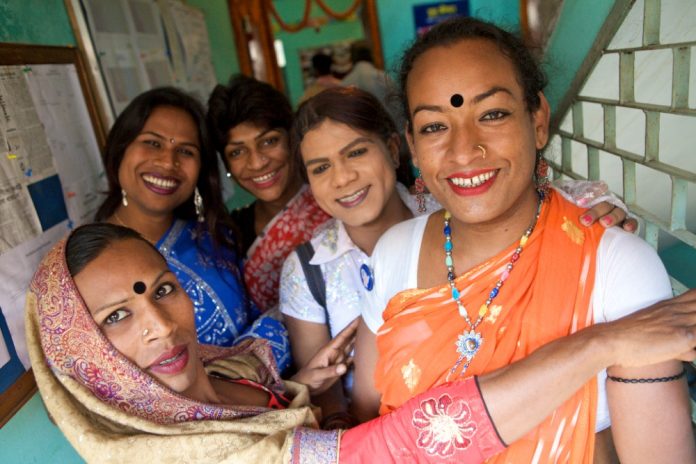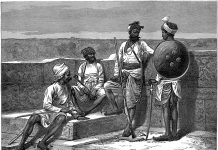Constitutional rights of transgender people
Preface to the Constitution mandates Justice – social, financial, and political equity of status. In this way the as a matter of first importance right that they are deserving of is the privilege to correspondence under Article 14. Article 15 talks about the disallowance of discrimination on the ground of religion, race, standing, sex or spot of birth. Article 21 guarantees right to protection and individual respect to all the residents. Article 23 precludes trafficking in individuals as poor people and other comparable forms of forced labor and any negation of these arrangements will be an offense culpable in accordance with law.
The Constitution accommodates the fundamental right to balance, and endures no discrimination on the grounds of sex, station, belief or religion. The Constitution additionally ensures political rights and different advantages to each resident. Be that as it may, the third network (transgenders) continues to be shunned. The Constitution confirms equity in all circles however the unsettled inquiry is whether it is being applied.
Problems faced by transgender
The main problems that are being faced by the transgender network are of discrimination, joblessness, absence of instructive offices, vagrancy, absence of clinical offices: like HIV care and cleanliness, misery, hormone pill abuse, tobacco and alcohol abuse, penectomy, and problems related to marriage and adoption.In 1994, transgender people got the voting right however the assignment of issuing them voter personality cards became involved with the male or female inquiry. A few of them were denied cards with sexual category of their decision.
Different fields where this network feels ignored are inheritance of property or reception of a youngster. They are often pushed to the outskirts as a social out-station and many may wind up begging and dancing. This is human trafficking. Once in a while running out of all choices to take care of themselves, they even engage themselves as sex workers for endurance.
HIV AND HEALTH-RELATED RISKS
An investigation led in a Mumbai STI clinic reported extremely high HIV seroprevalence of 68% and high syphilis commonness of 57% among Hijras. In Southern India, an investigation recorded a high HIV seroprevalence (18.1%) and Syphilis predominance (13.6%) among Hijras. An examination led in Chennai reported high HIV and STI commonness among Aravanis: 17.5% analyzed positive for HIV and 72% had in any event one STI (48% tried seropositive for HSV-1; 29% for HSV-2; and 7.8% for HBV)
Sexual health
Hijras/TG people group face a few sexual health issues including HIV. Both individual and relevant level factors influence sexual health condition and access to and use of sexual health administrations. For instance, most Hijras/TG are from lower financial status and have low proficiency levels that present a hindrance to seeking health care. Thusly, Hijras/TG people group faces some novel hindrances in accessing treatment administrations for STIs.
Mental health
The mental health needs of Hijras/TG people group are barely tended to in the current HIV programs. A portion of the mental health issues reported in various network forums includes sadness and self-destructive propensities, perhaps auxiliary to cultural disgrace, absence of social support, HIV status, and savagery related pressure.
Alcohol and substance use
Accessible proof recommends the need to address alcohol and substance use among Hijras/TG people group. An obscure however critical proportion of Hijras/TG people group devours alcohol conceivably to forget the pressure and sorrow that they face in their day by day life. Hijras give a few reasons justifying their alcohol utilization that go from the need to ‘forget worries’ (because there is no family support or nobody cares about them) to managing harsh customers in their sex work life. Be that as it may, alcohol use is related to inability to use condoms or insist on their customers use condoms, and along these lines increase the chance for HIV transmission and obtaining.
SOCIAL EXCLUSION OF ‘HIJRAS’/TRANSGENDER WOMEN
Social Exclusion Framework is viewed as having notability in addressing the obstructions to meeting the Millennium Development Goals, especially where these identify with exclusionary social relations and institutions. This segment uses this framework to delineate the different forms of abuse faced by the Hijras/TG people group.
Exclusion from family and society
All in all, Indians endure, acknowledge, and regard a wide scope of contrasts in societies, religions, languages, and customs. In spite of Indian society’s general atmosphere of acknowledgment and resistance, there seems, by all accounts, to be restricted open information and understanding of same-sex sexual orientation and people whose sex personality and articulation are in-harmonious with their organic sex. Human rights infringement against sexual minorities including the transgender networks in India has been broadly reported.
Discrimination in healthcare settings
Hijras face discrimination even in healthcare settings. Often, healthcare suppliers rarely had the opportunity to understand the sexual assorted varieties and they don’t have sufficient information about the health issues of sexual minorities. Hence, TG people face exceptional boundaries while accessing open or private health administrations. Obstructions in accessing HIV testing, antiretroviral treatment, and sexual health administrations have been all around reported.
Hijras face discrimination even in the healthcare settings. Often, healthcare suppliers rarely had the opportunity to understand the sexual assorted varieties and they don’t have sufficient information about the health issues of sexual minorities. Hence, TG people face exceptional boundaries while accessing open or private health administrations. Obstructions in accessing HIV testing, antiretroviral treatment and sexual health administrations have been all around reported.
Transgender people are individuals of any age or sex whose appearance, individual qualities, or behaviors vary from generalizations about how people ‘should’ be. Transgender people have existed in each culture, race, and class since the story of human life has been recorded. The contemporary term ‘transgender’ emerged in the mid-1990s from the grassroots network of sexual orientation various people.
In contemporary usage, transgender has become an ‘umbrella’ term that is used to depict a wide scope of personalities and encounters, including yet not restricted to transsexual people; male and female cross-dressers (now and again alluded to as ‘transvestites,’ ‘drag sovereigns’ or ‘drag kings’); inter-sexed individuals; and people, paying little mind to sexual orientation, whose appearance or attributes are seen to be sex atypical.
In its broadest sense, transgender includes anyone whose character or behavior falls outside of cliché sexual orientation norms. That includes people who don’t self-distinguish as transgender, however who are seen as such by others and in this way are dependent upon similar social mistreatment and physical brutality as the individuals who really relate to any of these categories. Other current equivalents for transgender include ‘sexual orientation variation,’ ‘sex unique,’ and ‘sex non-conforming.’
In India, there are a large group of socio – social gatherings of transgender people like hijras/kinnars, and other transgender personalities like – shiv-Shaktis, jogtas, jogappas, Aradhis, Sakhi, and so forth. Be that as it may, these socio-social gatherings are by all account not the only transgender people, however there might be the individuals who don’t have a place with any of the gatherings yet are transgender people individually.
Introduction to the Constitution commands Justice – social, monetary, and political balance of status. In this manner the above all else right that they are meriting is the privilege to uniformity under Article 14. Article 15 talks about the forbiddance of segregation on the ground of religion, race, standing, sex or spot of birth. Article 21 guarantees right to security and individual poise to all the residents. Article 23 forbids dealing in people as bums and other comparative types of constrained work and any repudiation of these arrangements will be an offense culpable as per law.
The Constitution accommodates the crucial right to uniformity, and endures no separation on the grounds of sex, station, statement of faith or religion. The Constitution likewise ensures political rights and different advantages to each resident. Be that as it may, the third network (transgenders) keeps on being shunned. The Constitution avows equity in all circles yet the unsettled inquiry is whether it is being applied.
According to the Constitution the vast majority of the insurances under the Fundamental Rights Chapter are accessible to all people with certain rights being limited to just residents. Past this classification the Constitution makes no further qualification among rights holders.
Be that as it may, official personality papers give common individual hood. Among the instruments by which the Indian state characterizes common individual hood, sexual (sex) personality is a critical and unavoidable class. Recognizable proof dependent on sex inside male and female is a critical part of common way of life as required by-the Indian state. The Indian state’s arrangement of perceiving just two genders and declining to perceive hijras as ladies, or as a third sex (if a hijra needs it), has denied them at a stroke of a few rights that Indian residents underestimate.
These rights incorporate the option to cast a ballot, the option to possess property, the option to wed, the option to guarantee a conventional personality through a visa and a proportion card, a driver’s permit, the privilege to instruction, work, wellbeing so on. Such hardship confines hijras from the very texture of Indian common society.
Problems faced by transgender
The primary problems that are being faced by the transgender network are of segregation, joblessness, absence of instructive offices, vagrancy, absence of clinical offices: like HIV care and cleanliness, wretchedness, hormone pill misuse, tobacco and liquor misuse, penectomy, and problems identified with marriage and selection.
In 1994, transgender people got the democratic right yet the errand of giving them voter character cards became involved with the male or female inquiry. A few of them were denied cards with sexual classification of their decision.
Different fields where this network feels ignored are legacy of property or reception of a youngster. They are often pushed to the outskirts as a social outcaste and many may wind up asking and moving. This is human dealing. Now and again coming up short on all choices to take care of themselves, they even connect with themselves as sex laborers for endurance.
Transgenders have constrained business openings. Transgenders have no entrance to washrooms/latrines and open spaces. The absence of access to washrooms and open spaces get to is illustrative of segregation faced by transgenders in profiting every offices and civilities. They face comparative problems in penitentiaries, emergency clinics and schools.
Most families don’t acknowledge whether their male kid begins carrying on in manners that are viewed as ladylike or improper to the normal sex job. Subsequently, relatives may compromise, admonish or even ambush their child/kin from carrying on or sprucing up like a young lady or lady.
A few guardians may by and large abandon and expel their own kid for intersection the recommended sexual orientation standards of the general public and for not satisfying the jobs anticipated from a male youngster. Guardians may give a few motivations to doing as such: carrying disfavor and disgrace to the family; decreased odds of their youngster getting hitched to a lady later on and hence end of their age (in the event that they have just a single male kid); and saw failure with respect to their kid to deal with the family. Along these lines, later transgender ladies may think that its troublesome even to guarantee a lot of the property or acquire what might be legally theirs.
In some cases, the youngster or adolescent may choose to flee from the family not ready to endure the separation or not having any desire to carry disgrace to one’s family. Some of them may in the end discover their approach to Hijra people group. This implies numerous Hijras are not instructed or uneducated and therefore think that its hard to land positions. Besides, it is elusive people who utilize Hijras/TG people. A few individuals from the general public criticism sexual orientation variation people for being ‘extraordinary’ and they may even be threatening. Indeed, even from police, they face physical and obnoxious attack, constrained sex, coercion of cash and materials; and captures on bogus charges. Nonappearance of insurance from police implies hoodlums discover Hijras/TG people as obvious objectives for blackmailing cash and as sexual articles.
A recent report archived that in the previous one year, the level of those MSM and Hijras who detailed: constrained sex is 46%; physical maltreatment is 44%; boisterous attack is 56%; coercion for cash is 31%; and danger to life is 24%.
This judgment covers persons who need to relate to the third sexual orientation just as persons who need to transition starting with one character then onto the next, for example to male to female or the other way around. The Court has guided Center and State Governments to give lawful recognition of sex character whether it be male, female or third sex.
Legitimate Recognition for Third Gender: In perceiving the third sexual orientation class, the Court decided that central rights are accessible to the third sex in a similar way as they are to guys and females. Further, non-recognition of third sex in both crook and common resolutions, for example, those identifying with marriage, adoption, separate, and so forth is oppressive to the third sex.
Legitimate Recognition for individuals transitioning inside male/female parallel: As for how the real methodology of recognition will occur, the Court just expresses that they like to follow the mind of the person and utilize the ‘Mental Test’ rather than the ‘Organic Test’. They likewise announce that demanding Sex Reassignment Surgery (SRS) as a condition for changing one’s sexual orientation is unlawful.
General Health and Sanitation : Center and State Governments have been coordinated to take legitimate measures to give clinical consideration to Transgender individuals in the medical clinics and furthermore give them separate open latrines and other offices. Further, they have been coordinated to work separate HIV/Sero-observation measures for Transgenders.
Socioeconomic Rights : Center and State Governments have been approached to give the network different social government assistance plans and to regard the network as socially and economically in reverse classes. They have likewise been approached to broaden reservation in educational institutions and for open arrangements.
Disgrace and Public Awareness : These are the broadest directions – Center and State Governments are approached to find a way to make open mindfulness with the goal that Transgender individuals will feel that they are additionally an integral part of the public activity and not be treated as untouchables; take measures to recover their regard and spot in the public arena; and genuinely address the issues, for example, dread, disgrace, sexual orientation dysphoria, social weight, depression, self-destructive inclinations, and social shame.
Testing 377: The judgment contradicts the discoveries of the Supreme Court in Suresh Kumar Koushal in different ways.
Milestone accomplishment
National Legal Services Authority v. Union of India is a milestone decision by the Supreme Court of India, which proclaimed transgender individuals to be a ‘third sexual orientation’, confirmed that the major rights allowed under the Constitution of India will be similarly relevant to transgender individuals, and gave them the privilege to self-identification of their sex as male, female or third-sex. This judgment is a significant advance towards sex correspondence in India
The need of the hour
The TRANSGENDER RIGHTS Bill must perceive that sexual orientation character must go beyond natural; sex personality is a person’s profound and personal experience. It need not correspond to the sex doled out during childbirth. It incorporates the personal feeling of the body and other expressions, for example, one’s very own inciting continues.










Neat blog! Is your theme custom made or did you
download it from somewhere? A design like yours with a
few simple adjustements would really make my blog jump out.
Please let me know where you got your theme. With thanks
Thank you so much.
fantastic submit, very informative. I’m wondering why the other specialists of this sector do not realize this. You should continue your writing. I am confident, you’ve a huge readers’ base already!
Thank you